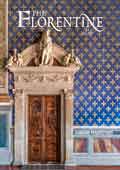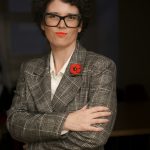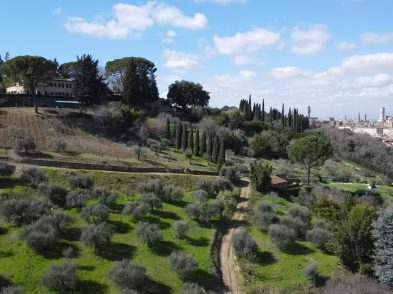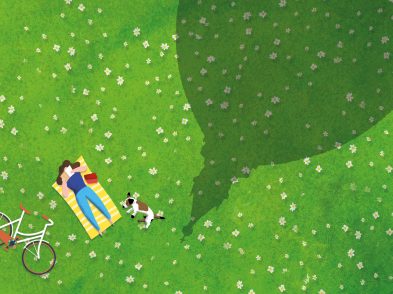Nirav Tolia is an über-successful entrepreneur who studied at Stanford University before working for Yahoo! and going on to found his own businesses including Epinions and, most notably, Nextdoor. With his wife Megha and their three children, Nirav is currently enjoying an extended sabbatical in Florence as a member of Palazzo Tornabuoni.
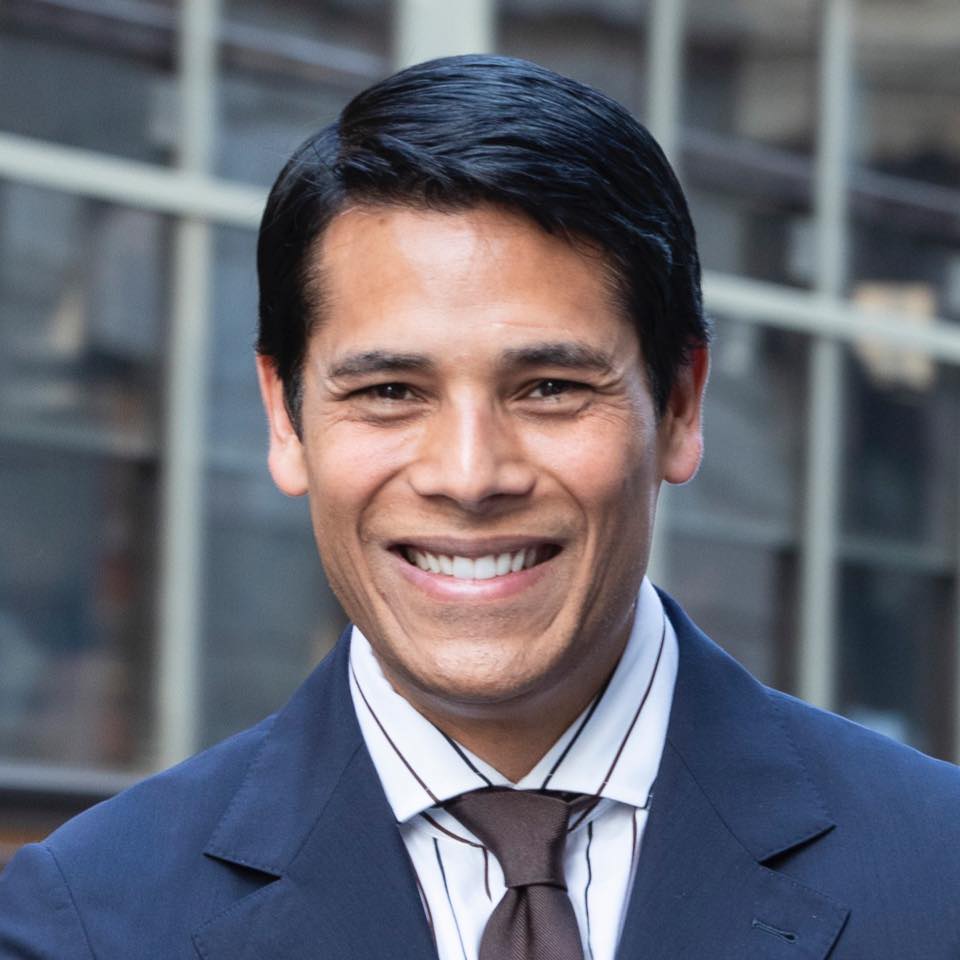
Helen Farrell: Thank you so much for agreeing to do this interview, Nirav.
Nirav Tolia: Honestly, it’s an honor. I’m a huge fan of the publication. This is our second attempt to do a year-long sabbatical in Florence. We originally arrived in August 2019, but we went back to San Francisco in early March when Covid started to ramp up in Italy. We watched as Italy handled it better than America and decided to come back. That entire time, we were reading The Florentine and really enjoying it.
HF: What we have in common is the central idea of community. This is what Nextdoor was about when you launched it, right? Maybe you could talk me through your career so far and what community means to you?
NT: Community has been a driving force personally and professionally my entire life. It’s not just a business tool; it’s something that I believe in and it’s as important to me as anything after family, faith and health. I’m the son of two Indian immigrants who came over to America after they married. I was born on the East Coast, but we moved to Texas when I was one or two years old, and so my memories are of growing up in Texas. Texas is a place where community is a big part of its identity. We joke that Texas is going to secede from the United States and become its own nation, and that sense of Texas pride, southern pride, pride as a whole is a very strong unifier. I remember growing up being part of two communities: Odessa, a small city that few people have heard of, and the Indian-American community—my parents were part of that, because they were (and are) both physicians, and they were the second and third Indian physicians to come to West Texas. The other thing about Texas is football: American football is a huge focus there. Football also creates community; it makes you feel like you’re on a team and, whether you’re a supporter of a team or in a team, that’s just such a big part of what makes it special. Community is about shared experiences. At its core, the notion for me that’s so powerful about community is that together we can accomplish so much more than we can individually. That to me is, in a nutshell, the power of community.
HF: Was it Stanford that introduced you to technology?
NT: I had a high-speed connection in my dorm room (this was the early Nineties). I knew nothing really about technology; I’d had computers from an early age and I enjoyed computer science, but I never thought of it as a vocation. But I plugged my computer into this high-speed connection and I discovered Usenet. This was even before the World Wide Web; it was basically what we think of as Facebook groups today, if you imagine them only being text and accessed via mainframes. That was Usenet: newsgroups, essentially. I found a series of sports newsgroups. It’s all user-generated content and the one I found was alt.sports.football.dallascowboys. I’d go there because no one was a Cowboys fan on the West Coast and I’d connect with fans from all over the world. I had a bit of an epiphany—in retrospect, it feels so clear, but it never works that way in real life—that would lead to a career. Growing up in Texas, the only real limitation I felt was a limitation of geography. There were no other Indians in my school because my parents had been the early immigrants to Texas. I wanted to learn new things; I wanted to find people like me, and because I was living 300 miles from a big city, I couldn’t really access anything outside of what was immediately in my neighborhood. I remember wanting to read the Wall Street Journal, just because I wanted to learn about business. You couldn’t get it in Odessa; there wasn’t enough demand for it to be delivered. That’s a crazy notion today! I remember thinking when I went on the Internet in the early Nineties, even predating the World Wide Web, “Wow, you could be on the top of Mount Everest and you could access the Wall Street Journal at the same instant as the person on Wall Street is accessing it.” That was an epiphany for me, and ultimately led to the creation of all of my companies.
At Stanford, I was studying to be a physician like my parents and I wasn’t particularly good at it. My parents weren’t putting any pressure on me, but I was putting a lot of pressure on myself because I wanted to do something that I felt I was meant to do. I joined this a cappella singing group and that offered a sense of community as well. Beyond the singing part of it, which I really enjoyed and my colleagues were very, very talented (some of them went on to sing on Broadway and become professional entertainers!), I became the business manager in addition to being a performer. I was very competitive. The world’s most famous collegiate a cappella group is from Yale, the Whiffenpoofs, and so that was our main competition. We were an all-male group, the Stanford Fleet Street Singers, and when I was business manager, we generated more revenue, going on to win the Grammy of Collegiate A Cappella. That was my first introduction to business.
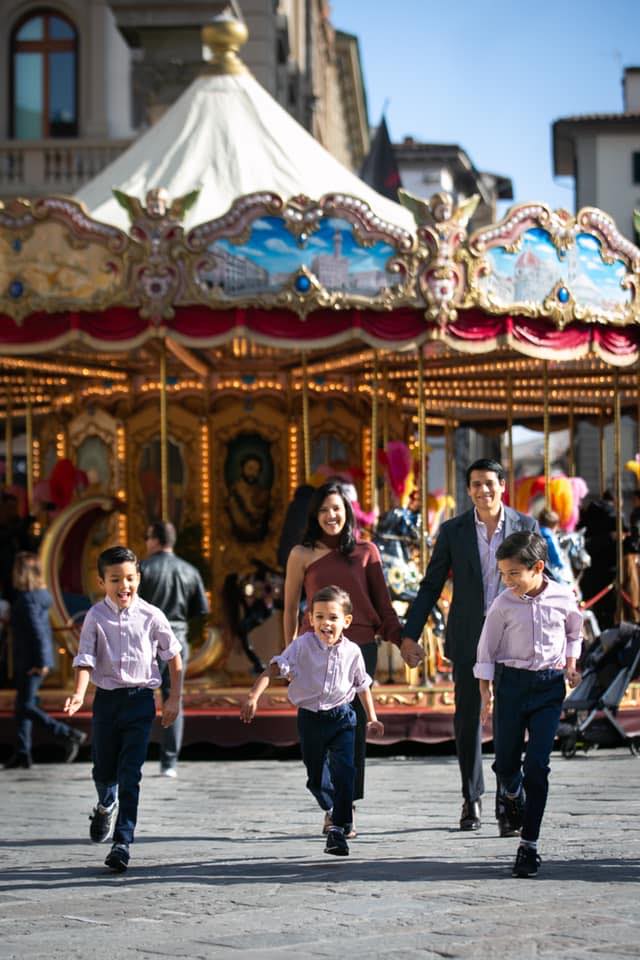
Nirav Tolia, wife Megha and their three children in piazza della Repubblica, Florence
HF: How funny to think that a creative pastime became your first foray into business!
NT: Yes, and it was through this community I was lucky enough to meet the founders of Yahoo!, which had just been started. They were looking to hire people and no one really wanted to go work for a company called Yahoo! (this is before they went public and before the Internet boom). I was lucky enough that, with no experience and no qualifications, they agreed to hire me. I convinced my parents that I would take a year before going to medical school and work at Yahoo!.
Here’s a funny story. Before Yahoo! became well-known, there was a chocolate milk company in the United States called Yoo-hoo. The Indian community in West Texas were so sad that I wasn’t going to medical school, and they had no idea about this company called Yahoo!—they thought I was delivering milk as a milkman! In hushed tones when my parents were at some event, they’d whisper in the corner, “Can you believe Dr. Tolia’s son? He was so smart, got into Stanford, he was going to be a doctor… now he’s a milkman? We’ve got to make sure that doesn’t happen to our children!”
When I was there in the late Nineties, I was their eightieth employee, but by the time I left there were 10,000 employees, the market cap went from 100 million to 100 billion. That really launched my career in the Internet, although for the first two years I was at Yahoo!, I would still tell my parents that after this year, I’d go to med school. Which, of course, I never did. My brother went to med school, which is good, and he married a doctor!
HF: That must have relieved the pressure. When did you decide to go it alone as an entrepreneur?
NT: While I was at Yahoo! the theme of community continued and I was interested in starting a company because creating something from nothing really excites me. This is a very Florentine mentality that goes all the way back to the Renaissance and even predating the Renaissance. The notion of creating something, of breathing life into something and feeling that pride, it’s something you thought of, put your soul into and it becomes its own thing. I was never motivated by money. I wanted to create things and I had ideas. But I didn’t know what I was doing, so I created a community of entrepreneurs, and we called this group Round Zero. It’s a geeky name, based on where you go to start a company in Silicon Valley. It was my first CEO job—although we didn’t call it CEO—but I was starting this labor of love. It consumed me, even when I was asleep; it was one of those beautiful things.
The people who came to Round Zero ended up starting Google, LinkedIn, all these companies we know today. That was the beginning of my network in Silicon Valley. Serendipity, luck and timing to me are the three ingredients that matter most with success. Yes, you need hard work, intelligence and ambition. But many hard-working, smart and ambitious people don’t have serendipity, timing and luck. I had all three; I was incredibly blessed. After doing Round Zero for a couple of years and being at Yahoo! for three and a half years, I started my own company called Epinions, a horrible dot-com era name in 1999 for electronic opinions. Again, it was about user-generated content and communities around expertise. It launched with a lot of promise and hype, and then the dot-com bust happened. I was having to learn in the field as a CEO about laying people off and almost going out of business. We were lucky to bring the company back and take it public in 2004. It was bought by eBay in 2005 for $620 million.
Then I started a second company called Fanbase, which was also a community for sports enthusiasts, and that failed spectacularly. It went out with a whimper, not a bang. When I tried to get the money back to the investors in the summer of 2010, they said: “Hey, you have a really good team together. Why don’t you guys try to come up with one more idea?” That was when we came up with Nextdoor.
HF: Nextdoor is just like the various social media groups we now have, especially here in Florence. How did you develop the idea at the time?
NT: Nextdoor is, in many ways, the culmination of everything I’ve described. It’s about using technology to empower geography. I started working on the Internet because I felt like my neighborhood was a limitation. I ultimately started a company because I felt like technology had left the neighborhood behind. The importance of being a good neighbor, the importance of strengthening the place where you live, the importance of having a healthy, happy, safe neighborhood for children: all of it is so critical. I couldn’t have started Nextdoor when I was 27 because I didn’t have children, I didn’t own my house, and I didn’t really understand the importance of providing a great foundation, particularly for my children. Now I do.
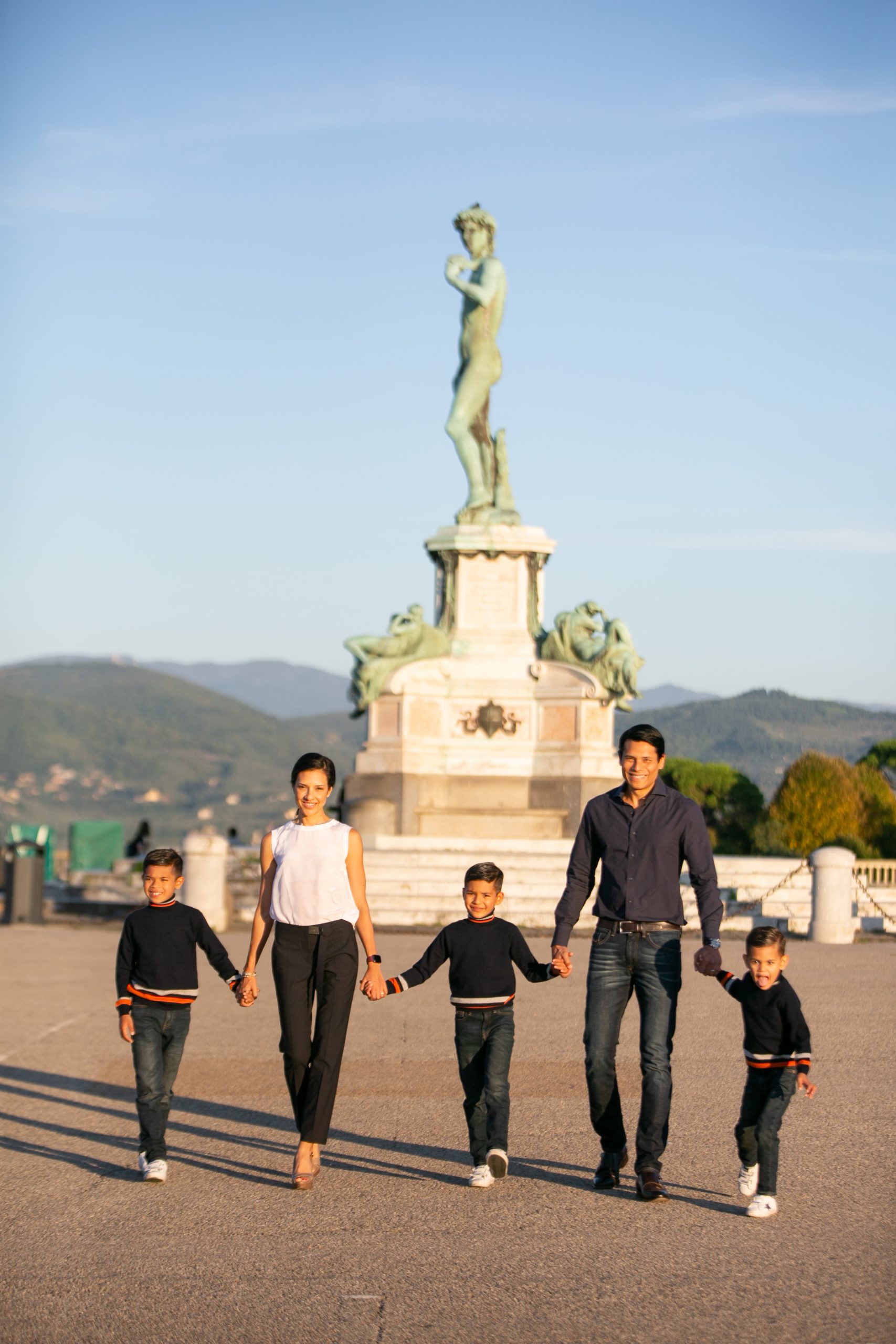
Nirav Tolia, wife Megha and their three children at piazzale Michelangelo, Florence
HF: But at a certain point, you decided to step down as CEO.
NT: My wife Megha and I reflected on the fact that we had three young kids and we both had these demanding high-powered jobs. We realized that one day we’d blink and suddenly our kids were going to be teenagers. We both thought, “What if we do something crazy? What if we decide to focus on the most important start-up of our lives, our family?” I decided I didn’t want to be CEO anymore because we had thousands of employees, we’d launched in twelve countries, and I was spending half the month on a plane. My wife and I have always loved Italy, and I felt a strong kinship between Florence and Silicon Valley. We first decided we wanted to live in Italy with our children for a summer because we’d never taken them out of the country. Thankfully, one of my board members at Nextdoor, Rich Barton, had started a company many years ago called Expedia. When he sold Expedia for $10 billion, he, his wife and his three kids decided to live in Italy for a year, in Florence. He had gone to Stanford and he’d actually studied in Florence when he was an undergrad there. When I was telling him that I was no longer going to be the CEO (now he’s CEO of Zillow, a $30 billion company, so the guy’s done pretty well!), Rich said, “If you’re thinking about spending a couple of months in Italy over the summer, that’s not going to be an authentic experience. You need to take your children and do an entire school year.”
HF: Then you ended up teaching an aptly titled course (Silicon Valley: The Modern-Day Rebirth of Renaissance Florence) at Stanford in Florence. How did that come about?
NT: We visited in February 2019 to get the schools sorted (that’s ISF for our children, another amazing community!) and I met Ermelinda Campani, the director of Stanford in Florence. We had a great conversation about the striking similarities between Renaissance Florence and Silicon Valley, and she offered me the opportunity to teach. I’d never taught anything and didn’t know what it was like to put together a syllabus. I’d been a CEO for 20 years! In class, we talked about the five forces that come together to create these special areas where magic happens, and one of the five forces was community. It’s super strong in Silicon Valley and it was super strong in Renaissance Florence. If we bring that back to Florence, we’ll have an opportunity to get past some of the most recent difficulties. If we don’t, if we’re fragmented, if we suffer by ourselves, I think it’s much harder for us to overcome challenges.
HF: How did you discover Palazzo Tornabuoni?
NT: Palazzo Tornabuoni is an incredibly special community. It is unlike anything else in the world because it brings together a true diversity of individuals in terms of geography, age and life experiences. But we all have this one strong thing in common: we love Florence. That love becomes a gateway for us to get to know each other. You come for the Palazzo, you stay for the community. It is a beautiful, historic palazzo in the best location in Florence, and it’s inspiring to be here and we feel blessed, but my kids love it because of the people. What’s been hardest about the pandemic, from a Palazzo Tornabuoni standpoint, is that it has eliminated the ability for us to come together as a community. The good news is that when we come back, and we know that we will, it’s going to be stronger than ever. It’s going to be a more fertile place than ever for great conversations, experiences and connections. It represents a lot more than a place to live; it represents a family.
